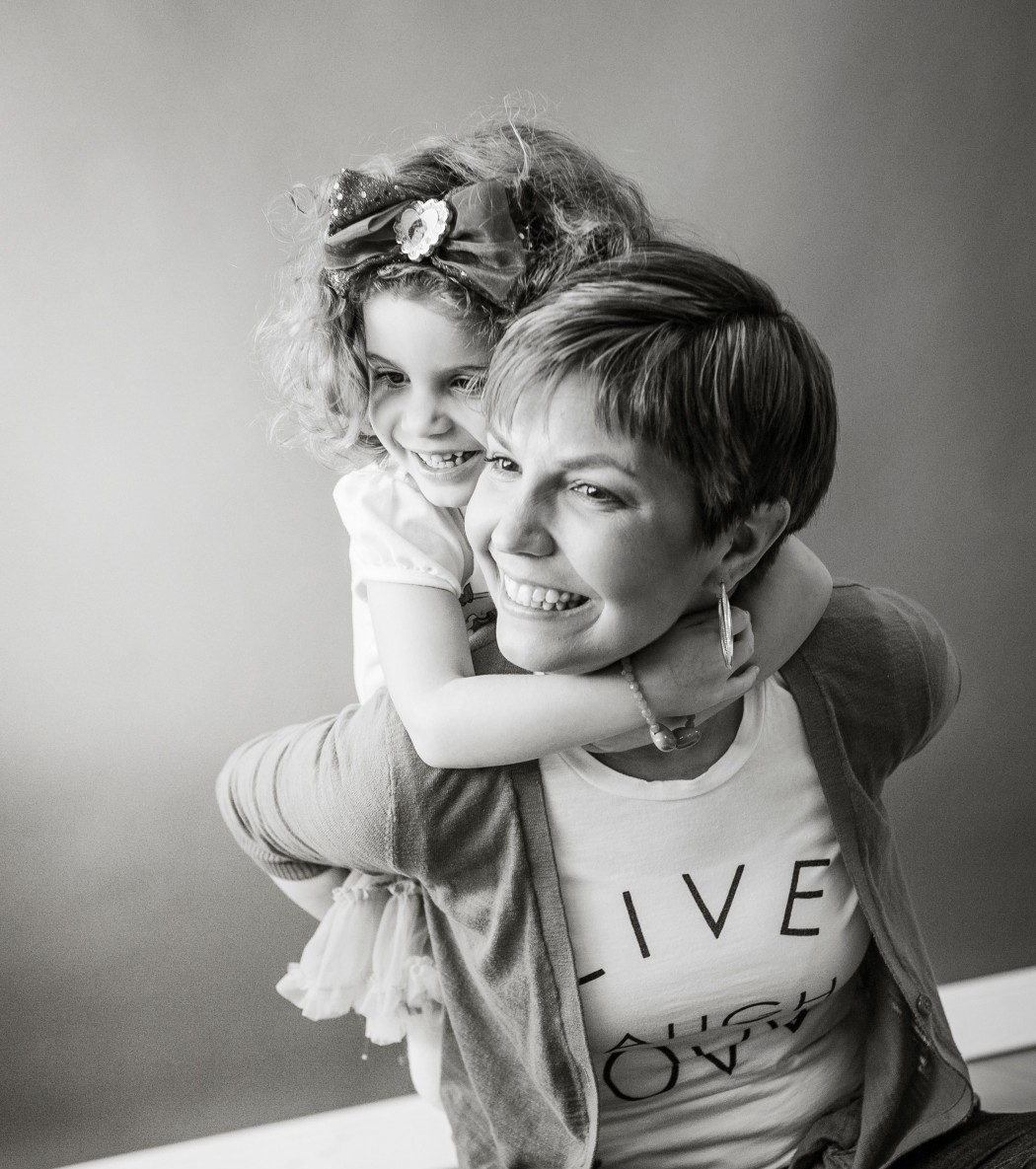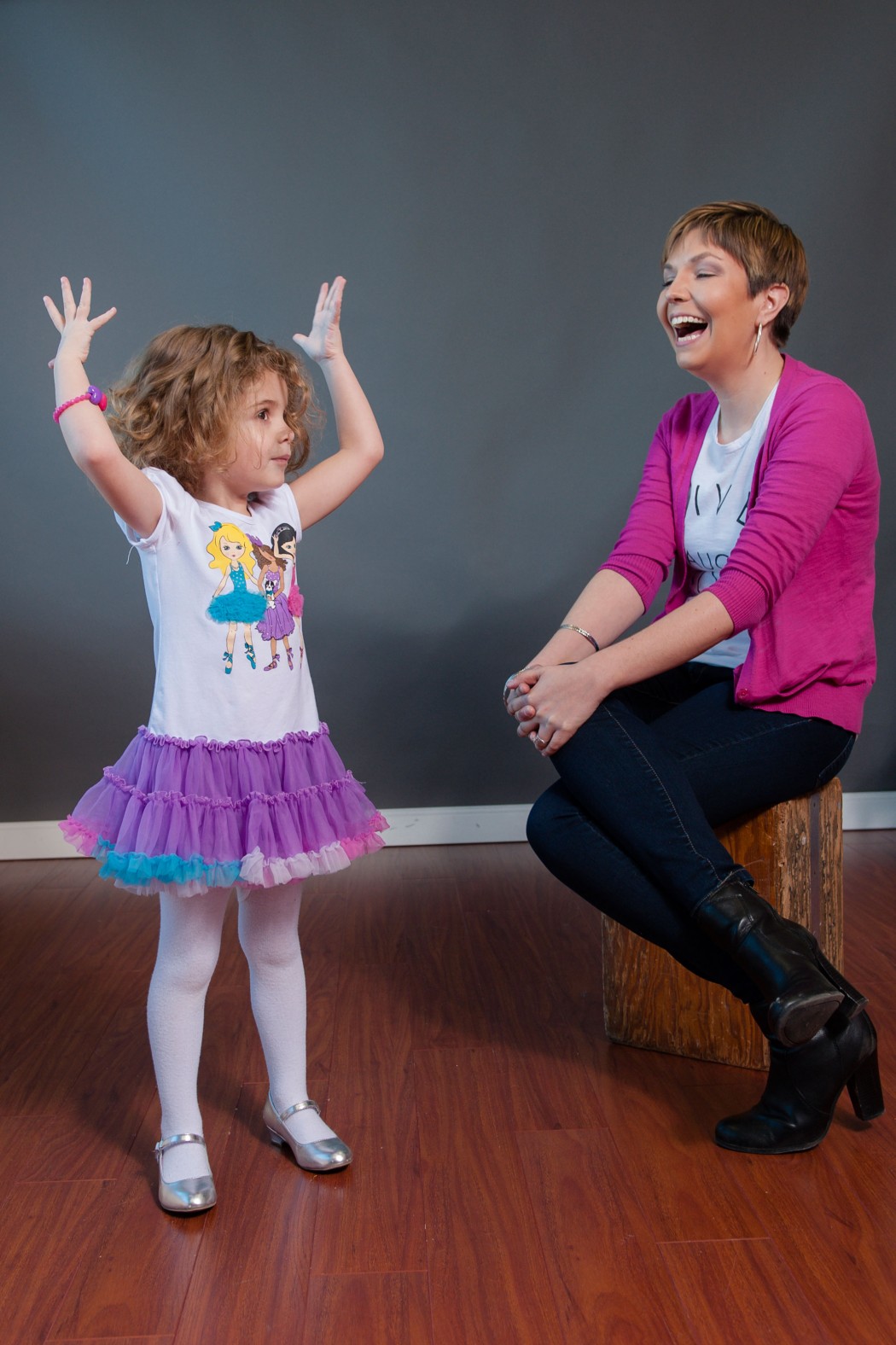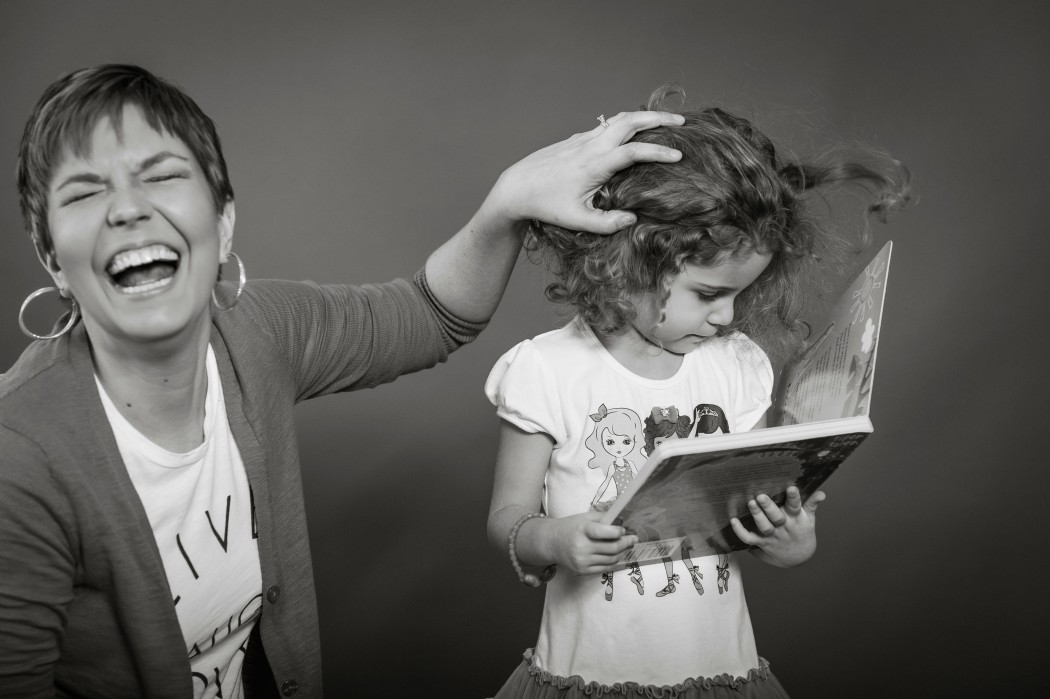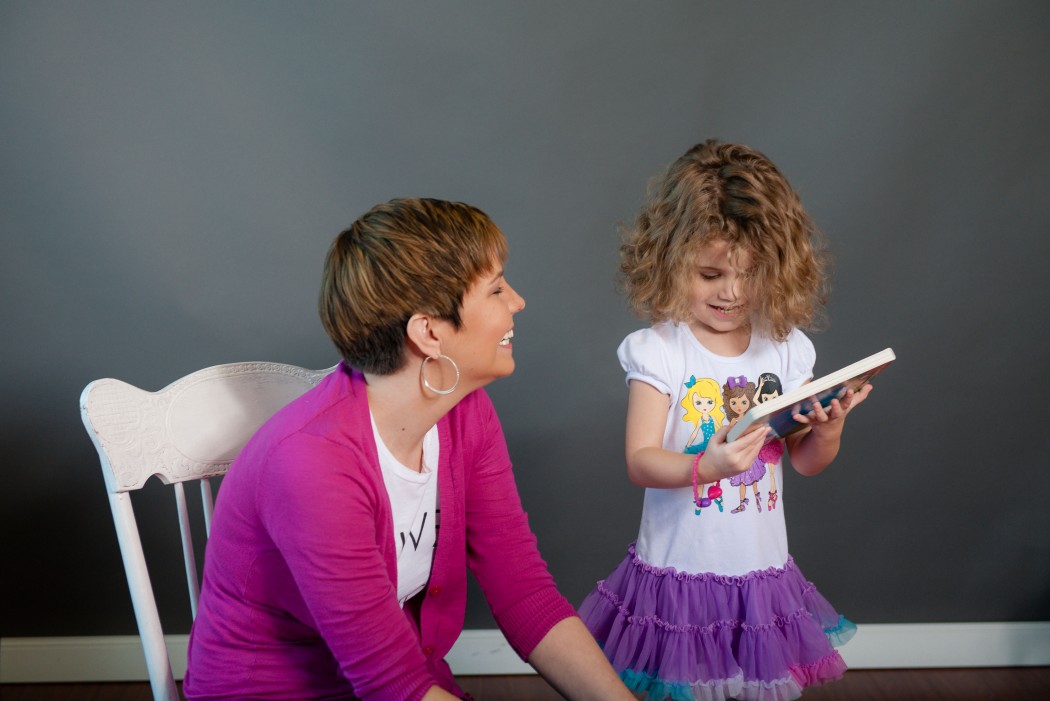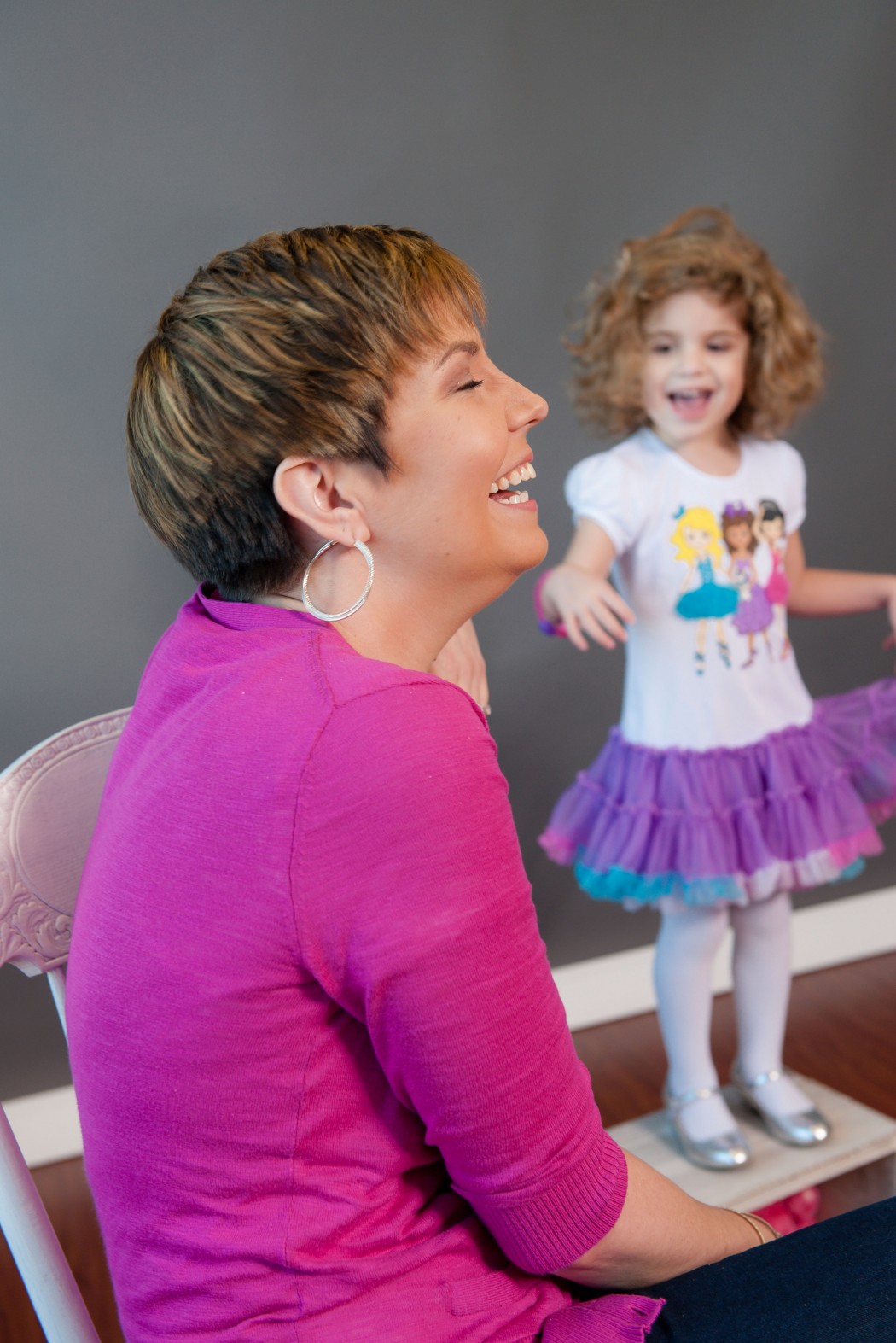What to say (and do) when someone has cancer
Heather McManamy, who was diagnosed with terminal cancer when her daughter Bri was 2, was more than willing to share her insights with BRAVA about how best to talk to your children if you have cancer.
She and her husband Jeff decided the best way to help Bri, who turns 5 on April 22, through it, and McManamy shared some of their experiences talking to Bri. She also shared some of her advice on how friends can best talk to friends who have terminal cancer.
McManamy, who died Dec. 15, 2015, stressed, though, that what worked for her might not work for everyone. And what you say to kids can “vary wildly” by age.
Answer honestly, and listen ”Don’t try to hide what’s going on. Kids pick up on everything.”….If they know you are upset or stressed or worried, they default to thinking it’s because of them somehow. It’s important to stress that cancer/illness isn’t something that is their fault. It isn’t contagious.
Let them be there “She was there when I shaved my head. I thought it would be far more upsetting to come home looking drastically different. It didn’t faze her in the least. She simply asked if I was getting a haircut and moved on.”
Be yourself: I’d wear crazy colored wigs or a hat most of the time, but I was always in all my bald glory at home (hats and wigs are itchy!). She only saw mommy. It was actually quite beautiful. She asks more questions now when we see old pictures (I always made sure we still took pictures together and didn’t shy away from our reality). I tell her I had something called chemo that made my hair fall out. We laugh about how silly it was.”
Use real words “I’m always careful to use the real words: cancer, chemo, etc. Kids don’t have the baggage attached to those terms that we do. At her age, if I said I was sick and medicine made my hair fall out, she’d be terrified that when she caught a cold, she’d be bald. Or taking antibiotics would make her hair fall out.”
Let them help “When I needed rest from treatment or was sick, I also let her see that. If she wanted to (and only if she asked), we let her take care of me by bringing water, tucking me in, or picking up meds at the pharmacy. She felt she was helping and it made her so proud. Seeing her now, I truly believe that it made her an incredibly empathetic and compassionate kid and a wonderful friend.”
Repeat questions are OK “She’d often ask the same question (for example, what is my port?) over and over and over again. It seemed to reassure her that the answer was always the same. Finally, when she asked me, I told her it’s called a port and doctors use it to give me something called chemo that keeps me healthy. I told her it doesn’t hurt and said she can touch it. She literally shrugged, examined it for a minute and said, “oh, ok.” and moved on.”
Don’t hide “When I go into what I call “shutdown mode” and need. to sleep, I try to do it in the same room she and my husband are playing in. I think just my presence is something comforting to her, even if I’m not awake.”
Prepare for your absence Now that the situation has drastically changed, I have met with a child psychiatrist and researched the crap out of how to handle this. At her age, she still isn’t old enough for a formal sit-down. She wouldn’t understand….I plan to have her meet a child psychiatrist soon, just so that when things deteriorate for me or I pass, it will not be a new strange experience with a stranger. I have told her it’s just a special person you can talk to and learn about feelings.”
Keep to the routine Another key at her age seems to be routine. We have always made sure to keep her routine as normal as possible. As much as I want to spend every second with her, I know how important it is for her to be at preschool with her friends. That’s her support system and what’s best for her.”
Save memories I’ve made recordings for all the important “talks” as she grows up. Including explaining my cancer journey for her to understand as she’s older. I’ve made sure to stress that there is nowhere I would rather be than with her. Nowhere.
Best things friends can say and do
I know it’s hard “I know that people have no idea what to say or do. And they always mean well. But the fact they don’t know what to say can lead to some….awkward situations. It was shocking to me how little people know about metastatic cancer. Unless a loved one has gone through it, they seem to know nothing about it. I can’t tell you how many times I’ve been asked when I’m done with treatment (never) or if I caught it early (I did) or been assured that I will beat this (I won’t).”
Don’t pity me ”I don’t want your pity! My life is awesome Yes, it is a hell of a lot harder than most people’s (it really shouldn’t be so hard to simply not die) and it will be shorter than what I had hoped (however, no amount of time would ever be enough), my life is amazing. We are so ridiculously happy and I am incredibly lucky to have the best family in the world. Don’t pity me. Don’t be sorry. I’m here today. And I’m here tomorrow.”
Don’t be fooled by appearances ”People don’t realize that most advanced cancer treatments don’t make you bald. People have carded me and made comments about how I look like a different person now. I’ve taken the honest approach (I’m currently going with the, if you want to ask, you’d better be prepared for the truth, approach) and told them that cancer will do that. They always ask if I’ve beaten it or if they “got it all.” When I say that’s not how stage four cancer works, the response universally seems to be, “but you look so healthy!” I guess I’m glad that I at least don’t look like I’m dying. But it’s hard to be told over and over and over how young I am and how healthy I look. I don’t think people realize that you never know what someone is going through based on appearances.”
Don’t be afraid to ask This stuff makes people uncomfortable. And it’s so unique to each individual going through it. I think the best thing to do is just ask. And some people are the opposite. They don’t want to talk about it at all. This doesn’t mean they’re in denial, it’s just how they get through. So don’t be offended if someone would rather chat about the weather.”
Honor my brand of faith “Whatever brings you comfort, that’s really great and I respect that. But please respect that we may have different beliefs. A polite ‘I’m praying for you’ is sweet, but trying to convert me or telling me this is part of a plan (I am not a fan of this plan) will only be hurtful.
Save the medical advice “I appreciate you thinking of me, but telling me a cousin of your old neighbor beat cancer by eating baking soda is not helpful and only implies I am not doing all I can to be here for my family.”
Let’s also talk about you “I love my friends. With all my heart. I still want to hear about what’s going on in their lives. I don’t want to be depressing cancer person. I’m still me! I want to laugh with them, share the joy of good news, hear their silly complaints about annoying co-workers or funny stories about their kids.”
Surprise me “I love getting random texts, cards, messages or silly Facebook posts. It gets me through days that are unimaginably difficult. Nothing can make that pain better, but simply getting a message that says, “Hey, thinking of you.” or a silly cancer joke helps me come out the other side.
Accompany me “It’s also nice when people offer to go to appointments. I have a lot (I think buttload is the technical term). However, I hope they only offer if they are prepared for it. I love the chemo clinic. The nurses are amazing, we’re always cracking up and it’s actually fun when they’re not telling me I’m dying 🙂 Plus they have free snacks! But I know that seeing all the bald people, everyone with ports plugged in, the medical icky side of it, is very upsetting. I hesitate to expose anyone to it. But if you can handle it, an offer to keep me company is so meaningful.”
Thanks for the space ”I also appreciate that people understand we need space. When there’s a big scary scan, or bad news, or even just an exhausting day, we need time to process. We need time to get through it ourselves or to just be in a McManamy family bubble where nothing else exists in the world.
Don’t disappear ”I’d rather have someone say the wrong thing than nothing at all. It’s sad how many people disappear when this stuff happens. I know some people don’t have the tools to handle it. Or it’s too upsetting. I’d rather have that honesty and openness. I know that I scare people. It’s nice to have people admit that and still stick around.”
I’m still me Most of all, I want to be treated normal. I’m still here. It’s still me. I’m not the cancer patient you see in the movies. I’m not ‘Terms of Endearment.’ I’m the same person I’ve always been. And the thing is…you never know…you could die before me 😉 And who knows, I may not even die from cancer. I could get eaten by a bear.”
Heather McManamy left other lasting lessons for daughter Bri when she died. She posthumously published her book, co-written by William Croyle, “Cards for Brianna, A Mom’s Message of Living, Laughing and Loving as Time is Running Out.” The book is full of messages from mom to daughter to be read at the milestones of Bri’s life.

